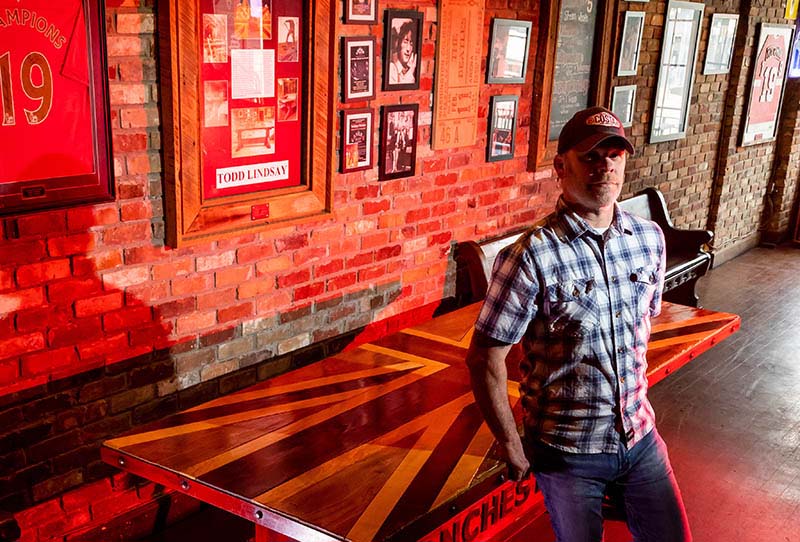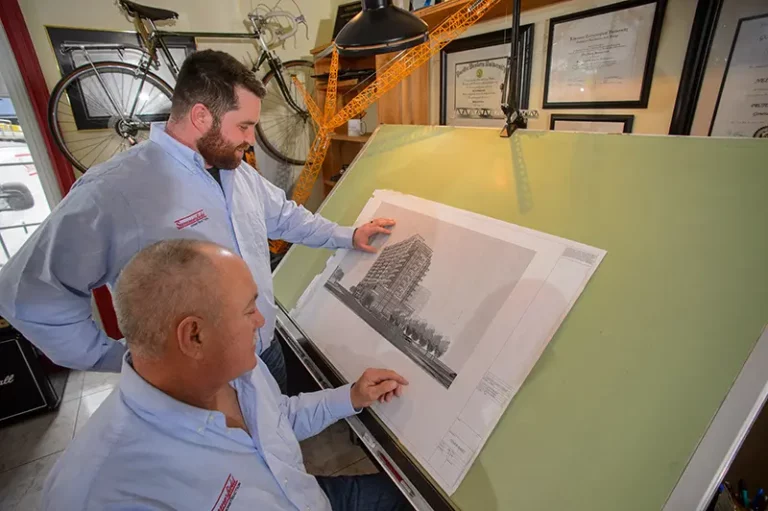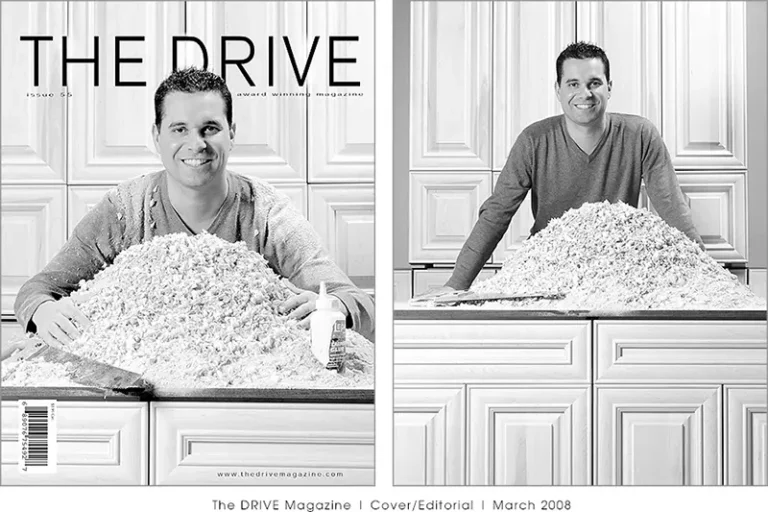Wood—the flesh and bone of a tree. There’s something poetic about holding a well-crafted carving in your hands. Whether rough, rugged, and untamed, or smooth, polished, and elegant, this marrow of the tree tells a story through its ancient ringed patterns and eternal beauty.
To master woodworking is to harness and understand the beauty of nature. To appreciate woodworking is to sense the deeper meanings of the artist’s thoughts, feelings, and fears.
For Todd Lindsay, and his custom furniture-building company, Todd Lindsay Designs, the act of creation was a discovery of purpose—a form of expression found in an unfamiliar discipline that would soon become a love and an obsession.
“I started over 30 years ago,” says Lindsay. “I was going to university, and I got a job with an older guy who was a craftsman. He was doing some doors and was showing me some techniques. I never took a shop class in high school or anything—didn’t do anything like that. I learned all the techniques and practised them, and I took off from there.”
The proliferation of Lindsay’s woodworking was a thing of chance. His natural skill, combined with his eye for detail, led to opportunities to build.
“I would build the odd thing, then I ended up getting tied in with a couple designers in Chicago and they told me to start building dining tables,” recalls Lindsay. “There’s a high-end store in Chicago and they would buy everything I would make.”
Skill led to success. Success led to recognition. Soon celebrities like talk show host Oprah Winfrey, interior designer Nate Berkus, and former Toronto Maple Leafs hockey star Doug Gilmour were ordering custom pieces directly from Lindsay.
“Most of the stuff now is mostly custom done—it kind of blew up,” states Lindsay. “The internet is a funny thing. Now I do furniture across the US—from LA to New York and Europe and Canada.”
A lot of this was thanks to his progression from designing furniture to full-on wood art. As his art progressed, his standards, his desire to create, and his demands upon himself evolved.
“After I started learning a lot of the joinery techniques and stuff like that, I really got into more of the design,” recalls Lindsay. “I think people that are woodworkers or whatever, they have their own design of what they think looks good. I think I have a certain style about what I do. I only make things that are my style and I love to do because you put yourself into these projects—these big pieces of furniture. It’s not going to turn out that well if I don’t really feel it—I have to be inspired by the design or I just won’t build it. I just won’t make it. I just turn it away.”
Lindsay feels that there are clear distinctions between woodworking tradesmen and craftsmen—and the difference comes down to the woodworker’s hands, their head, and what’s in their heart.
“Some people ask me the difference between the trades and craftsmen,” he explains. “The difference, I always say, is that if you work with your hands, you’re a tradesman, and if you work with your hands and your head, you’re a craftsman—but if you work with your hands and your head and your heart and what you feel, you put those all together, you’re a master craftsman and you’re pretty much working with your soul.”
Lindsay adds that he has developed a feel for troubleshooting woodworking designs over the years. He says that a lot of problems tend to crop up when designing and building.
“Not everything works out as you draw it on paper,” he states. “You have to design it a certain way for it to work out and look good. That’s a lot of what woodworking is and anything like it. You go to one problem and solve it and then you take the next step—it’s like a staircase—you go up one stair, you solve that problem. There’s always an issue with any project that you’re going to have to continually solve problems with.”
Much like his furniture, he is constantly creating little vanity projects that he later donates to good causes. These often circle around sports and music memorabilia.
“Every couple weeks, I try to make something—not only the furniture—but I’ll do a lot of sports or music art pieces and donate them to local golf tournaments or galas, or whatever event people are having,” says Lindsay. “They need raffle prizes or live auction prizes, and I can always throw unique twists on those to raise a lot of money in our community.”
Lately, Lindsay has been putting together pieces for Ed Jovanovski’s annual charity golf tournament. The event, which takes place on Friday, July 7 at Pointe West Golf Course in Amherstburg, raises money for the Princess Margaret Cancer Foundation. He has already put together a piece that was autographed by Edmonton Oilers’ superstar Connor McDavid but is currently finishing a piece honouring the 2002 Canadian men’s Olympic ice hockey team that will be autographed by game-winning goal scorer Joe Sakic and Jovanovski, who assisted on the goal.
“They’re all different, they’re all a challenge to design, but it’s fun,” explains Lindsay. “It’s kind of like when I build furniture—it’s like I’m on a vacation and I’m getting a massage—it’s not work at all. Two people might sit down and watch TV, but me, I’ll put some music on and create something cool.”
Lindsay says that becoming a master craftsman requires time, patience, and persistence.
“Just take it step by step. It’s a long road,” he cautions. “You’re going to get better and better as you go. It takes time, so just have fun with it and build something that you’d like to build—but you fail at it, just start over and try again.”



